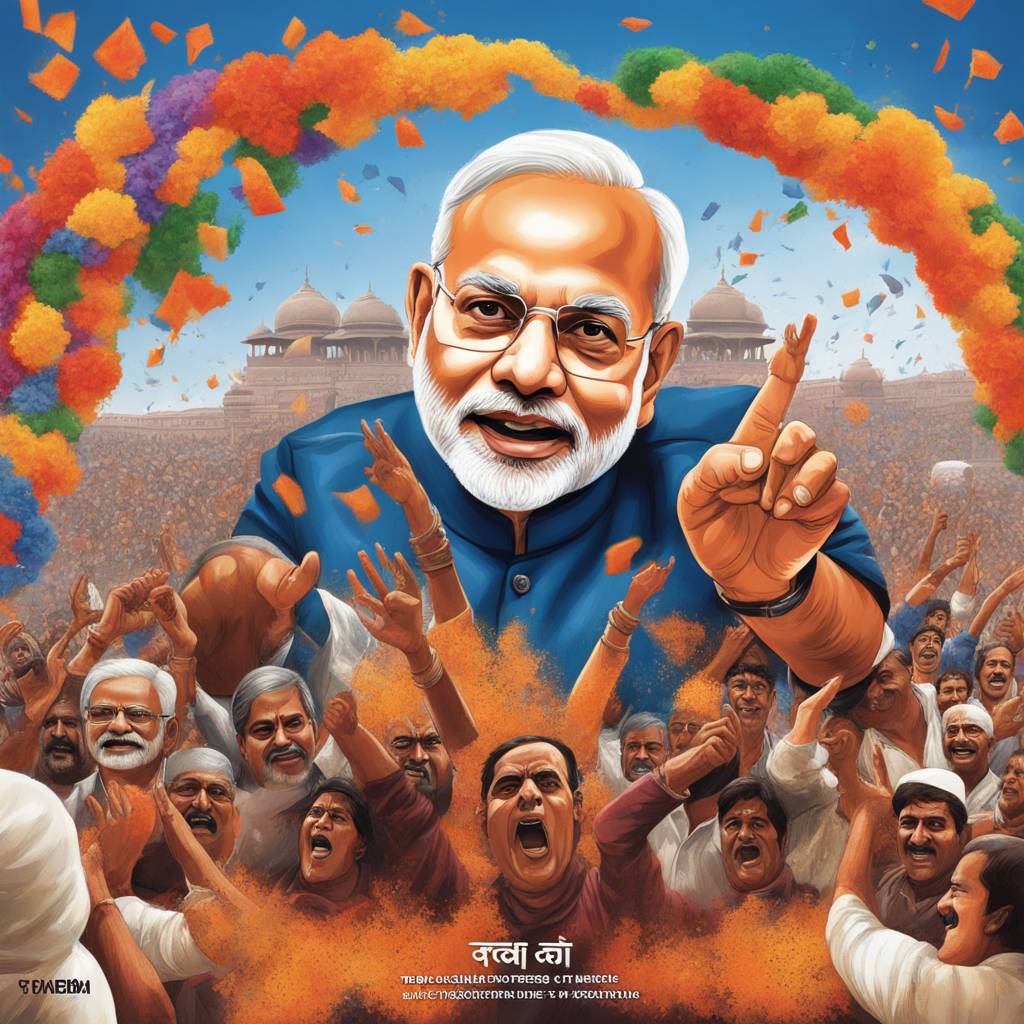against a resurgent opposition led by Rahul Gandhi, who is hoping to capitalize on discontent over Modi’s economic policies and controversial social agenda. The election is seen as a crucial test of Modi’s popularity and his Hindu nationalist Bharatiya Janata Party’s grip on power. With India facing job losses, rural distress, and rising religious tensions, the election is expected to be closely watched both domestically and internationally.
The election will be held in seven phases, allowing adequate time for security forces to be deployed to ensure a peaceful voting process. This extensive process is necessary in India due to the large population and diverse geography of the country. The election authority is also taking precautions to prevent voter fraud, such as the use of electronic voting machines and the implementation of strict identification requirements. The goal is to ensure a fair and transparent election that accurately reflects the will of the Indian people.
The election campaign is expected to be fiercely contested, with both Modi and Gandhi traveling extensively across the country to rally support for their respective parties. Modi will likely emphasize his government’s achievements in improving infrastructure, boosting economic growth, and cracking down on corruption. Gandhi, on the other hand, will focus on highlighting the failures of Modi’s policies, such as demonetization and the implementation of a controversial goods and services tax. He will also seek to connect with voters on a personal level, presenting himself as a more empathetic and inclusive leader compared to Modi.
The outcome of the election is uncertain, with opinion polls showing a close race between Modi’s BJP and Gandhi’s Congress party. Some political analysts believe that regional parties could play a crucial role in determining the final outcome, especially in states with large numbers of parliamentary seats. The election is also expected to have far-reaching implications for India’s foreign policy, particularly in relation to its neighbors such as Pakistan and China. A change in government could lead to a shift in India’s approach to regional diplomacy and security.
Overall, the Indian election is shaping up to be a pivotal moment in the country’s political history, with significant implications for its future direction. The contrasting visions of Modi and Gandhi, as well as the unique challenges facing the country, will make this election closely watched by observers both within India and around the world. The outcome will not only determine the composition of India’s parliament but also set the tone for the country’s economic and social policies in the years to come. As the world’s largest democracy, India’s election will be closely scrutinized for its adherence to democratic norms and its impact on regional stability.













